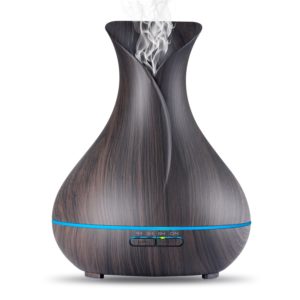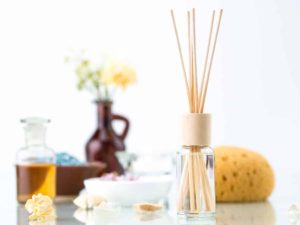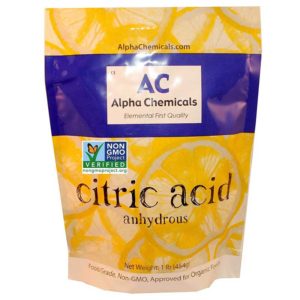Aromatherapy enthusiasts know the importance of having an essential oil diffuser in their home. These devices help with breaking down essential oils into tiny particulates and subsequently dispersing them into the atmosphere.
There are three main types of diffusers, including nebulizing, ultrasonic and evaporative diffusers. Since oil is the main ingredient in a diffuser, these devices should be wiped after every use and cleaned thoroughly at least once a month. Such cleanup helps with the removal of tougher oil residues that build up over time.
Table Of Content
Cleaning Process:
Different Types of Cleaners:
While many ingredients can be used to clean diffusers, some of the best grease removers include citric acid, alcohol and vinegar. Given that different diffusers have diverse components and working mechanism, they call for diverse methods of cleaning. As such, an aromatherapy enthusiast should follow the following instructions depending on the type of their device.
Ultrasonic Diffuser Cleaning Process

A standard ultrasonic diffuser comes with a reservoir that contains a mixture of water and essential oil. The reservoir is usually fitted with a small disc at the bottom and a lid to cover the device. After using the diffuser for a while, the homeowner will observe the reservoir, cover and the small ultrasonic disc beginning to change color. This is attributable to the buildup of water and oil residues.
To clean this device, the aromatherapy enthusiast should fill the reservoir with water and add a tablespoon of vinegar. They should subsequently allow the device to run for about fifteen minutes and let the mixture sit in the tank for a few hours.
Alternatively, users could make a solution of one tablespoon of citric acid and 100mls of warm water, pour it into the device and let it sit in the reservoir for about 10 minutes. After the mixture of water with citric acid or vinegar has sat for the required amount of time, they should empty the reservoir and wipe the device clean with a damp cloth.
NOTE: For citric acid, be sure to rinse the device two or three times before beginning to diffuse again.
Also, homeowners should place a cloth in isopropyl (rubbing) alcohol and use it to wipe the entire device clean. The outer parts of the diffuser can also be wiped down with a damp cloth with soapy water. This device should never be submerged in water.
Nebulizing Diffuser Cleaning Process

This device utilizes a small air pump that blows warm air through a tiny tube to create a powerful vacuum, which helps with pulling out the essential oil. Due to this mechanism, cleaning this device is a little bit challenging. This is because the thick oil may clog the microtubes, which impedes its performance.
To clean it, the user is required to remove the upper jar from the diffuser and place it in a bowl containing a mixture of water and a tablespoon of vinegar. They are subsequently required to use a soft brush to scrub the gunk off these parts. To clean the microtubes, they will need to pour the mixture of water and vinegar and run the diffuser.
Alternatively, people may pour half an ounce of rubbing alcohol or a solution of citric acid into the device and let it run for ten to fifteen minutes. Next, they should pour out the leftover solution and allow the device to air dry. The alcohol or citric acid will be diffused like essential oils, in the process of which it will remove any oil residues that might be stuck in the microtubes.
When dismantling the nebulizing diffuser, aromatherapy enthusiasts out to be careful not interfere with its mechanical parts. Again, the outer casing should be wiped with a damp cloth.
Evaporative Diffuser Cleaning Process

This diffuser uses the power of the wind to disperse the essential oil. Most of these devices contain an absorbent material like a wool pad or wick that holds the essential oil and a fan that pushes air towards the wick to push out the oils.
Cleaning this device is as simple as its mechanism. All a person needs to do is remove the wick from the reservoir and place it inside diluted vinegar, citric acid or rubbing alcohol. They should subsequently let it sit for about thirty minutes before using a soft brush to clean the device. The same cleaning agent should be used to clean the reservoir.
It’s important to note that these cleaning techniques can be used for different models of diffusers. Such brands include Victsing, Asakuki, Urpower, Young Living, Gurunanda, Vitruvi, Ellia and Muji. However, it’s important to adhere to a specific manufacturer’s guidelines when cleaning each device.
Pros and Cons of Using these Organic Cleaners
Using citric acid, vinegar and rubbing alcohol is among the best ways of executing a proper cleanup on diffusers. This is because of their superior capacity to remove grease from different surfaces. However, each product carries its own benefits and downsides, as explained below.
Also, if you decide to use one of these products should check out more detailed step by step guide for cleaning essential oil diffuser.
Vinegar
This product is cheaper than store-bought chemicals cleaners, not to mention that it’s safe for indoor environments because it doesn’t contain any harmful chemicals. Vinegar is also easy to acquire and can be used to clean both the outer and the inner surface of the diffuser. However, many people complain that vinegar leaves their diffuser with a strong, unpleasant odor.
Alcohol
Cleaning with alcohol is an excellent option for sanitizing surfaces that shouldn’t be cleaned with acids. This includes the outer parts of a diffuser whose surface color is susceptible to fading. Although rubbing alcohol initially produces a smell that reminds users of hospitals, it evaporates quickly and doesn’t leave a lingering smell like vinegar.
Citric Acid
Although citric acid is less popular as a cleaning agent, it cleans greasy items remarkably well. This makes it an excellent choice when it comes to cleaning dehumidifiers. Citric acid is a cost-effective product that’s commonly derived from citrus fruits like lemon. This is an excellent method if you are looking to clean oil diffuser without vinegar as it boasts a superior advantage over vinegar; it doesn’t produce any smell. This cleaning agent comes in the form of crystalline powder, and it’s readily available in local outlets. However, inhaling the powder can cause throat irritation and shortness of breath. It’s, therefore, advisable to wear a dust mask when handling the power.
Diffusers provide a great way of dispersing essential oils, introducing a comfortable and relaxing atmosphere to any living environment. However, since oil is a sticky substance, these devices require thorough cleaning from time to time. This prevents them from clogging and ensures their prolonged effectiveness.
While many cleaners are available in the market today, some of the best grease cleansers include vinegar, citric acid, and rubbing alcohol.
Updates
Jun 26, 2019 – Added 2 images, and updated layout.
July 20, 2019 – Edited layout and added table of content.
